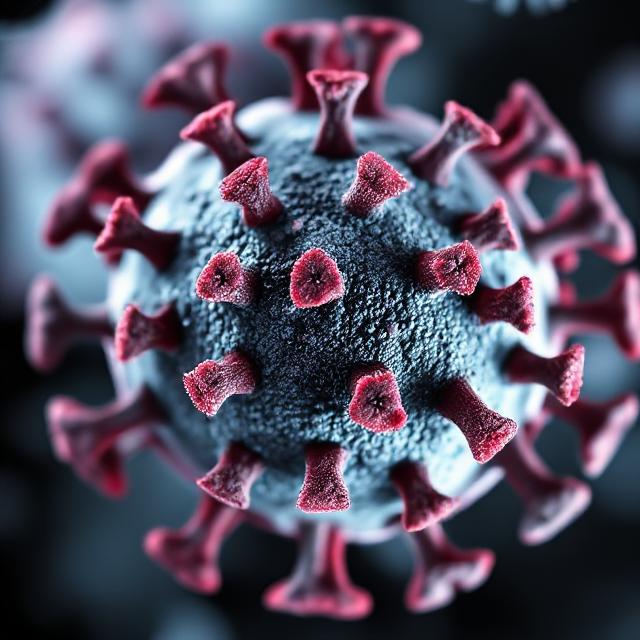What Is the NB 1.8.1 COVID-19 Variant?
The NB 1.8.1 form of SARS-CoV-2 was discovered in China in January 2025. By mid-May, it accounted for about 11% of sequenced samples globally, prompting the World Health Organization (WHO) to categorize it as a “variant under monitoring” due to its rising prevalence in countries such as the eastern Mediterranean, Southeast Asia, and the western Pacific..AP News

“Microscopic close-up of COVID-19 NB.1.8.1 variant mutation under microscope”
Where Has NB 1.8.1 Been Detected?
In the United States, NB 1.8.1 has been documented in travelers arriving at airports in California, New York, Virginia, and Washington.
As of May 27, 2025, less than 20 cases had been confirmed nationwide.
Genetic Profile and Transmission
NB 1.8.1 is descended from the Omicron JN.1 subvariant.
It has acquired multiple spike protein mutations, which may have an impact on transmissibility or immune evasion.
However, additional research is needed to confirm these possibilities.

“Microscopic close-up of COVID-19 NB.1.8.1 variant mutation under microscope”
.Navbharat Times+4Nation+4The Lancet+4Thailand Medical News
Symptoms of NB 1.8.1
The symptoms of NB 1.8.1 are comparable to those of other recent COVID-19 variations, and include:
Sore throat.
Nasal congestion.
Fatigue
Cough
Fever
Headache
In certain cases, particularly among unvaccinated or immunocompromised people, symptoms might worsen into severe respiratory distress.
Vaccine Effectiveness
According to the WHO, existing licensed COVID-19 vaccines are predicted to be effective against the NB 1.8.1 strain.
There is no indication that this variant causes more severe disease than other variants in circulation.
Prevention Measures
To lower the likelihood of infection with NB 1.8.1:
Stay up to speed with vaccines.
Masks used indoors in congested places
Test if symptomatic
Isolate if sick
Practice good hygeine
YouTube+8Nebraska Medicine+8datadot+8datadot+3Instagram+3Anadolu Ajansı+3World Health Organization+2World Health Organization+2The Lancet+2
The current dominant variant in the United States.
According to the CDC, the most common COVID-19 variation in the United States in April 2025 is LP.8.1, which accounted for 70% of recorded cases between April 26 and May 10.

“Microscopic close-up of COVID-19 NB.1.8.1 variant mutation under microscope”
Conclusion
While the NB 1.8.1 variant is being extensively examined because to its growing global distribution, there is no evidence that it poses a greater danger than other circulating variants.
Continued commitment to public health norms, including immunization and preventive measures, is critical.

